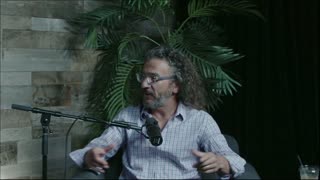Premium Only Content

The Island To Avoid On Earth - The Snake Island
Snake Island, officially known as Ilha da Queimada Grande, is a small island located approximately 90 miles (145 kilometers) off the coast of São Paulo, Brazil. It is renowned for its large population of venomous snakes, particularly the Golden Lancehead Viper (Bothrops insularis), which is considered one of the most venomous snakes in the world.
Here are some key points about Snake Island:
Venomous Snakes: The Golden Lancehead Viper is a species of pit viper that is endemic to Snake Island. The snake's venom is highly potent, and there is no known antivenom for its bite. The presence of these snakes has led to the island being considered dangerous to humans.
Restricted Access: Due to the potential danger posed by the snakes, access to Snake Island is strictly regulated by the Brazilian government. Visitors are generally not allowed, except for a few selected researchers and personnel with special authorization.
Conservation Significance: Despite the restrictions on human access, Snake Island is of interest to scientists and conservationists because it is one of the few places where the Golden Lancehead Viper is found. The species is critically endangered, and the island serves as an important habitat for its survival.
Isolation and Evolution: The snakes on Snake Island are believed to have evolved in isolation over thousands of years, leading to unique characteristics in the population. The lack of natural predators on the island has contributed to the snakes' dominance.
Naval Lighthouse: The Brazilian Navy maintains a lighthouse on Snake Island to aid navigation in the region. The lighthouse is automated, and maintenance visits are infrequent due to the risks posed by the snakes.
It's important to note that the "Snake Island" nickname is due to the abundance of snakes, and the island has a more formal name (Ilha da Queimada Grande). While the island has gained a reputation for its snake population, efforts are made to study and conserve the unique ecosystem
-
 LIVE
LIVE
Midnight In The Mountains™
26 minutes agoActive Matter Game Play | Gaming w/ PER·SE·VER·ANCE | with Midnight & Lady
29 watching -
 5:08:55
5:08:55
Dr Disrespect
6 hours ago🔴LIVE - DR DISRESPECT - BABY STEPS - THE VERY VERY LAST CHAPTER
99.5K11 -
 LIVE
LIVE
StoneMountain64
5 hours agoBLACK OPS 7 Unlocking Weapons and Overclocks (Mouse and Keyboard Player)
158 watching -
 3:59:10
3:59:10
ahdedazs
4 hours ago $1.06 earnedBlack Ops 7 EARLY ACCESS BETA! Second Stream on RUMBLE! *NEW CREATOR*
38.6K1 -
 3:24:38
3:24:38
LadyDesireeMusic
4 hours ago $2.26 earnedLive Piano 10-3-25
49.2K2 -
 54:08
54:08
vivafrei
3 hours agoLive With Dinesh D'Souza-The Dragons Prophecy
62.4K25 -
 3:20:13
3:20:13
Barry Cunningham
6 hours agoBREAKING NEWS: KAROLINE LEAVITT HOSTS SURPRISE WHITE HOUSE PRESS CONFERENCE!
59.7K37 -
 12:15
12:15
Dr. Nick Zyrowski
4 days agoSTOP Believing These Fasting Lies That Keep You Sick
16.9K2 -
 2:01:12
2:01:12
The Culture War with Tim Pool
7 hours agoNigeria's Christian Genocide, Media Ignoring Atrocities | The Culture War Podcast
175K90 -
 1:18:30
1:18:30
The Shannon Joy Show
4 hours agoKash Patel Doubles Down On Speech Control Opens The Door For Mass Censorship in America (Sponsored)
28.6K6
